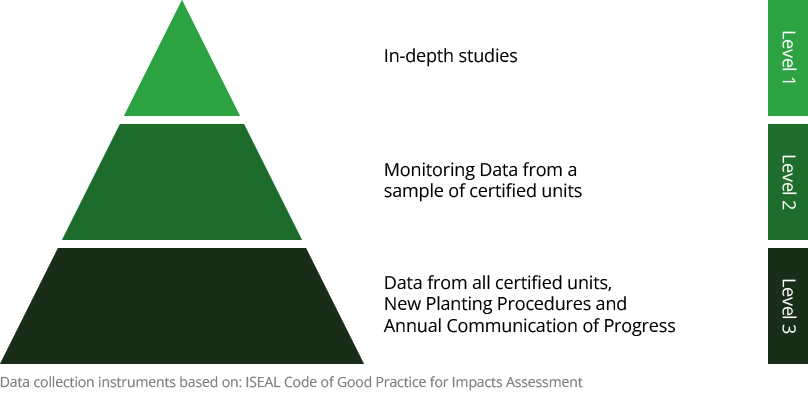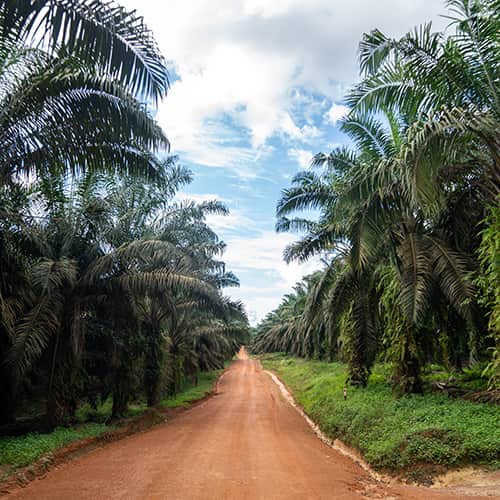Collaborating for Change
Interconnected pathways that drive sustainable outcomes.
The Theory of Change is the conceptual framework that outlines RSPO’s desired changes, identifying key actions and pathways needed to create lasting, measurable impacts for people, planet and prosperity while spearheading the next phase of transformation in sustainable palm oil.
How to read the Theory of Change
The revised RSPO ToC shows the direction of causal pathways and linkages for expected change and intended impacts aligned with the RSPO vision. It is divided into distinct layers:. Enablers, Actions and Interlocking Themes, Outputs, Intermediate Outcomes, Long-term Outcomes, and Impacts. Moreover, it is designed to accommodate various approaches to visualising the expected change and intended impacts of RSPO, and can be navigated either from bottom-up or top-down. However, we recommend starting with a bottom-up approach as this depicts the direction of change from inputs towards results.
RSPO Theory of Change Interactive Diagram
Here, you can immerse yourself in a dynamic experience – Begin by selecting the category that best represents you, which will guide you to the next screen, from there, you’ll see the results and causal linkages within the ToC Diagram that are relevant to your category. You can also click on any result boxes to reveal both direct and indirect causal pathways related to them. By hovering over these boxes, you’ll uncover the full statements of the outputs, intermediate and long-term outcomes.
For a comprehensive view of the entire diagram, simply click on any empty space within the Interactive Diagram. This intuitive design allows for effortless navigation, ensuring you can easily explore and understand the connections that drive our expected changes and intended impacts.
Downloadable ToC Documents
Monitoring and evaluating outputs and outcomes
RSPO uses a three-level structure for collecting and assessing data. Level 1 and 2 data form the foundation of RSPO data, as the output of RSPO Membership and its certification systems. This is then used as the basis for reporting on RSPO outcomes and impact as a certification standard, and RSPO Members’ contribution to the global sustainability landscape. Level 3 centres around data collected from in-depth commissioned and independent research studies, which are used to corroborate and enhance the narrative of our outcomes and impact.

To date, we have collected a large amount of Level 1 and 2 data. We are in the process of collating this data into a coherent series of Impact Indicators that describe RSPO’s outcomes and impact in line with the RSPO Theory of Change three pillars – People, Prosperity and Planet.
To drive the collection of Level 3 data, we have established a Research Agenda, which details priority research questions to help focus, inform and coordinate RSPO’s research work, as well as to foster collaboration with the research community. We also work closely with research institutions in contributing to independently conducted studies. A full list of completed research on the impact of RSPO Certification, commissioned by RSPO and independently conducted researchers, can be found in our Research Library.
Contact us
If you have questions or comments about RSPO’s impact, please contact our Impacts and Monitoring, Evaluation & Learning (IMEL) Team.
Photo Credit: RSPO/PT. BGA






